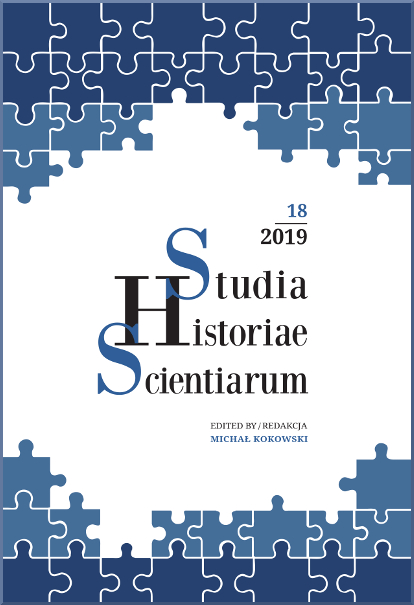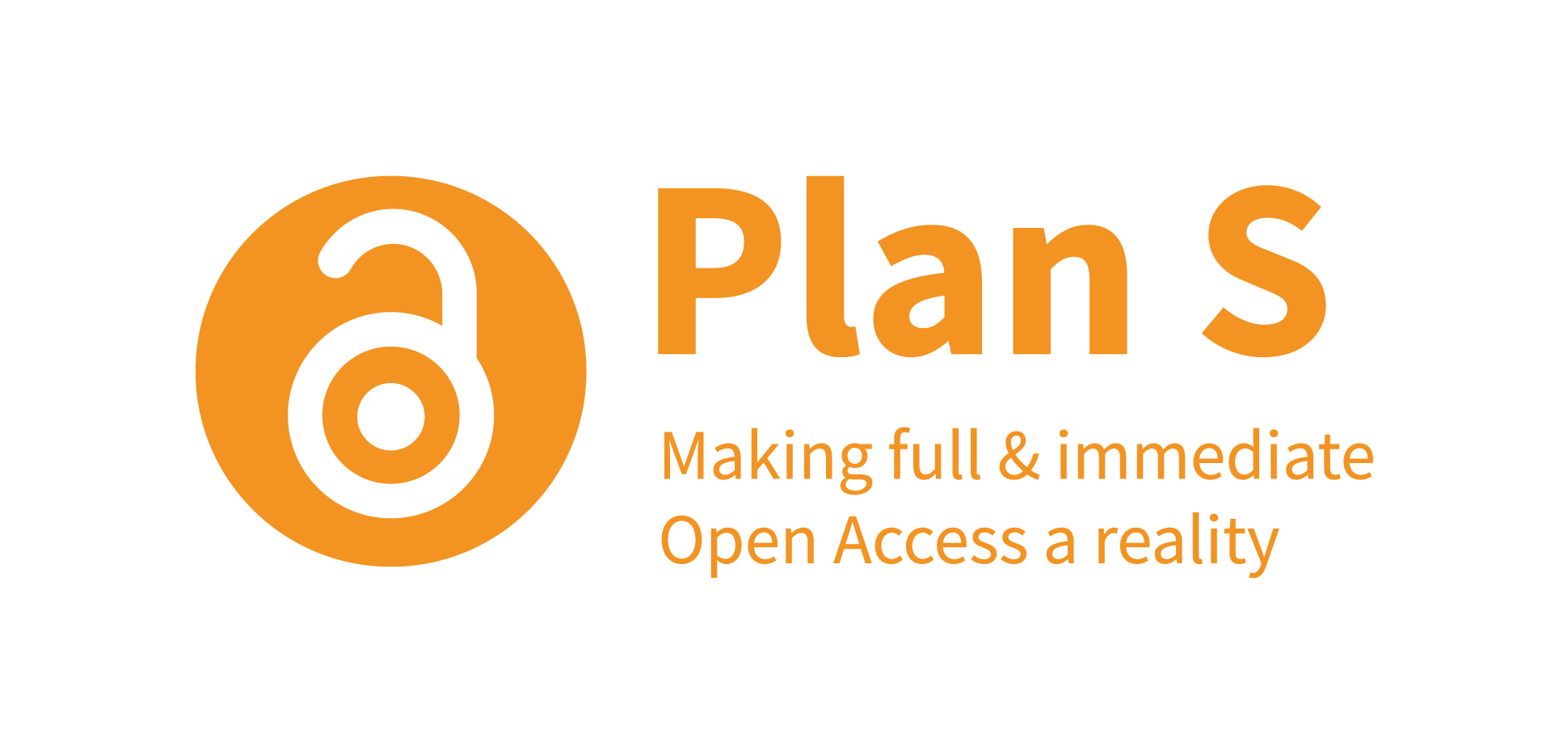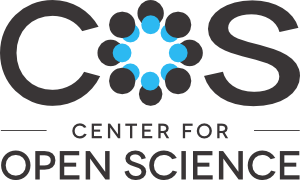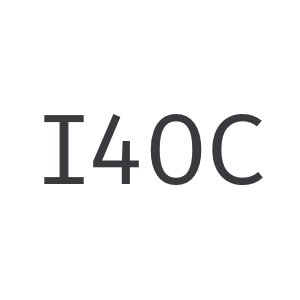Three-dimensional mathematical models illustrated by objects from the collections of the Jagiellonian University Museum
DOI:
https://doi.org/10.4467/2543702XSHS.19.009.11015Keywords:
Felix Klein, mathematical models, didactics of mathematics, Museum of the Jagiellonian UniversityAbstract
This paper presents examples of mathematical models which have almost passed into oblivion, yet a few decades ago still played a significant role in the teaching of mathematics. In the late nineteenth century such devices started to be produced on a large scale for schools and universities. The Jagiellonian University Museum has three such models in perfect condition in its collections.
References
ŹRÓDŁA ARCHIWALNE
Archiwum Uniwersytetu Jagiellońskiego (AUJ). Sygn. S II 865 Wydział Filozoficzny. Matematyka.
Archiwum Uniwersytetu Jagiellońskiego (AUJ). SEN Ak. L1026. „Odpis do akt” z dnia 30 VI 1899 r.
Archiwum Uniwersytetu Jagiellońskiego (AUJ). Pismo K. Żorawskiego z dnia 25 XI 1899 r.
Archiwum Uniwersytetu Jagiellońskiego (AUJ). Sygn. WFII 163 Katedry i Instytut Matematyczny 1851–1945.
Archiwum Uniwersytetu Jagiellońskiego (AUJ). „Inwentarz Modeli dla Katedry Matematyki Elementarnej sprawiony”, 1863/4, karty bez numeracji.
Archiwum Uniwersytetu Jagiellońskiego (AUJ). Notatka na okoliczność zwrotu tych modeli przez prof. Jana Kantego Steczkowskiego z dnia 14 XI 1863 r.
Archiwum Uniwersytetu Jagiellońskiego (AUJ). Pismo do c.k. filialnej Kasy w Krakowie z dnia 21 VI 1899 r.
Archiwum Uniwersytetu Jagiellońskiego (AUJ). Pismo Departamentu Nauki i Szkół Wyższych Ministerstwa Wyznań Religijnych i Oświecenia Publicznego z dnia 31 VIII 1923 r.
Archiwum Uniwersytetu Jagiellońskiego (AUJ). Projekt Regulaminu Instytutu Matematycznego Uniwersytetu Jagiellońskiego, bez daty.
ŹRÓDŁA DRUKOWANE
Boltzmann, Ludvig 1908: Vorlesungen über Maxwells Theorie der Elektrizität und des Lichtes. Część 1. Leipzig (wydanie drugie): Johann Ambrosius Barth.
Boltzmann, Ludvig 1882: Catalogue des Collections du ConservatoireNational des Arts et Métiers,zredagowany przez wydawcę. Paris: Dunod Éditeur.
Disteli, Martin 1904:Die Literatur- und Modellausstellung des III. Internationalen Mathematiker-Kongresses in Heidelberg 1904. Dostęp online (10.09.2018): http://archiv.ub.uni-heidelberg.de/volltextserver/12595/1/modell_1904.pdf.
Dyck,Walther 1892: Katalog mathematischer und mathematisch-physikalischer Modelle, Apparate und Instrumente, München 1892. Dostęp online (30.09.2018): https://archive.org/details/katalogmathemat00goog.
Fröbel,Friedrich 1874: Die Pädagogik des Kindergartens: Gedanken Friedrich Fröbel’s über das Spiel und die Spielgegenstände des Kindes. Friedrich Fröbel’s gesammelte pädagogische Schriften. Część 2. Pod redakcją Wicharda Langego, Berlin (wydanie drugie): Verlag Th.Ch.F. Enslin.
Kekulé, August 1867: Ueber Constitution des Mesitylens. Zeitschrift für Chemie 10, ss. 214–218.
Klein, Felix 1926: Vorlesungen über die Entwicklung der Mathematik im 19. Jahrhundert. Berlin: J. Springer.
Klein, Felix 1895: Rozważania porównawcze o nowszych badaniach geometrycznych (przekład Samuel Dickstein). Prace Matematyczno-Fizyczne 7, ss. 27–61.
Schilling, Frederick 1899: Über neue kinematische Modelle, sowie eine neue Einführung in die Theorie der cyklischen Kurven. Zeitschrift für Mathematik und Physik4, ss. 214–227.
Schilling, Martin 1903: Catalog mathematischer Modelle für den höheren mathematischen Unterrichtveröffentlicht durch die Verlagshandlung. Halle a. S.: M. Schilling.
Schilling, Martin 1911: Catalog mathematischer Modelle für den höheren mathematischen Unterrichtveröffentlicht durch die Verlagshandlung. Leipzig: M. Schilling.
OPRACOWANIA
Arnold, Władimir I. 2001:O nauczaniu matematyki (przekład Danuta Śledziewska-Błocka). Wiadomości Matematyczne 37, ss. 17–26.
Brenni, Paolo 2004: Mechanical and Hydraulic Models for Illustrating Electromagnetic Phenomena. Nuncius 19, ss. 629–657. DOI: 10.1163/182539104X00386.
Brenni, Paolo 2012: The Evolution of Teaching Instruments and Their Use Between 1800 and 1930. Science & Education 21, ss. 191–226. DOI: 10.1007/s11191-010-9326-z.
Ciesielska, Danuta; Domoradzki, Stanisław 2014: On Mathematical Lectures at the Jagiellonian University in the Years 1860–1918. Essay Based on Manuscripts. Czasopismo Techniczne Nauki Podstawowe 7, ss. 59–71. DOI: 10.4467/2353737XCT.14.058.2508.
Daston, Lorraine J. 1986: The Physicalist Tradition in Early Nineteenth Century French Geometry. Studies in History and Philosophy of Science 17, ss. 269–295. DOI: 10.1016/0039-3681(86)90010-5.
Dunham, William 1994: The Mathematical Universe: An Alphabetical Journey through the Great Proofs, Problems, and Personalities. New York: Wiley & Sons. ISBN 978-0471176619.
Friedman, Michael 2018: A History of Folding in Mathematics: Mathematizing the Margins. Cham: Birkhäuser. ISBN 978-3-319-72487-4.
Gablankowski, Maciej 2004: Mechanicy Uniwersytetu Jagiellońskiego (1787–1939),Archiwum Uniwersytetu Jagiellońskiego, praca magisterska pod kierunkiem prof. dr hab. Andrzeja Banacha. Kraków: Zakład Historii Kultury i Oświaty, Instytut Historii Uniwersytetu Jagiellońskiego.
Gesellschaft der Freunde der Technischen Hochschule Danzig (Hrs.) 1979: Beiträge und Dokumente zur Geschichte der Technischen Hochschule Danzig: 1904–1945. Zum 75. Gründungstag. Hannover: Gesellschaft der Freunde der Technischen Hochschule Danzig. ISBN 10: 3879900329. ISBN 13: 9783879900329.
Glas, Eduard 2000: Model-Based Reasoning and Mathematical Discovery: The Case of Felix Klein. Studies in History and Philosophy of Science 31, ss. 71–86.
Gross, David J. 1988: Physics and Mathematics at the Frontier. Proceedings of the National Academy of Science 85, ss. 8371–8375. DOI: 10.1073/pnas.85.22.8371.
Hajduk, Zygmunt 1972: Pojęcie i funkcja modelu. Roczniki Filozoficzne 20, ss. 77–124.
Harman, Peter M. 1982: Energy, Force, and Matter. The Conceptual Development of Nineteenth-Century Physics. Cambridge: Cambridge University Press. ISBN 978-0521288125.
Hashagen,Ulf 2003: Walther von Dyck (1856–1934): Mathematik, Technik und Wissenschaftsorganisation an der TH München. Stuttgart: Franz Steiner Verlag. ISBN 978-3515083591.
Hedgecoe, John; Moore, Henry 1968: Henry Spencer Moore. New York: Simon and Schuster. ISBN 978-0171410150.
Hervé, Jacques M. 2007: Théodore Olivier. [W:] Distinguished Figures in Mechanism and Machine Science: Their Contributions and Legacies. Cz. 1. Pod redakcją Marco Ceccarelliego. Dordrecht: Springer, ss. 295–318. DOI: 10.1007/978-1-4020-6366-413.
Instytut Henri Poincarégo 2018: Strona domowa. Mathematical Models. Dostęp online(6.09.2018): http://www.ihp.fr/en/node/404.
Karazin, V.N. 2018: Strona domowa projektu TouchGeometry Project. Dostęp online (6.09.2018): http://geometry.karazin.ua/en/geometric-models-collection.html.
Kidwell, Peggy Aldrich 1996: American Mathematics Viewed Objectively: The Case of Geometric Models.[W:] Vita Mathematica: Historical Research and Integration with Teaching. Pod redakcją Ronalda Calingera. Washington D.C.: Mathematical Association of America. ISBN 978-0883850978, ss. 197–208.
Lodder, Christina; Hammer, Martin 2000: Constructing Modernity: The Art and Career of Naum Gabo. New Haven, CT: Yale University Press. ISBN 978-0300076882.
Londyńskie Towarzystwo Matematyczne 2018: Strona domowa. Plücker Collection. Dostęp online(6.09.2018): https://www.lms.ac.uk/archive/plucker-collection.
Martin Luther University Halle-Wittenberg2018: Inverse von Peaucellier.Schillingkatalog Klassifikation. Inventarnummer Ib-009. Dostęp online (2.09.2018): http://did2.mathematik.uni-halle.de/modell/modell.php?Nr=Ib-009.
Mathematics & Computer Science Library. The Hebrew University of Jerusalem2018: Art in the library. Mathematical models display: http://math.huji.ac.il/~library/models.htm.
Mehrtens, Herbert 2004: Mathematical Models. [W:] Models: The Third Dimension of Science. Pod redakcją Sorayi de Chadarevian, Nicka Hopwooda. Stanford, CA: Stanford University Press. ISBN 978-0-804739-72-6, ss. 276–306.
Meinel, Christoph 2004: Molecules and Croquet Balls. [W:] Models: The Third Dimension of Science. Pod redakcją Sorayi de Chadarevian, Nicka Hopwooda. Stanford, CA: Stanford University Press. ISBN 978-0-804739-72-6, ss. 242–275.
Meinel, Christoph 2009: Kugeln und Stäbchen. Vom kulturellen Ursprung chemischer Modelle. Kultur & Technik 33, ss. 10–21.
Nawroczyński, Bogdan 1987: Zasady nauczania. Warszawa:Wydawnictwa Szkolne i Pedagogiczne. ISBN 9788302031939.
Neuwirth, Stefan 2014: Modèles mathématiques du Laboratoire de mathématiques de Besançon. Dostęp online (15.09.2018): http://epiphymaths.univ-fcomte.fr./modeles/.
Palladino, Nicla 1999–2000: Le Raccolte Museali Italiane di Modelli per lo Studio delle Matematiche Superiori. Dostęp online (15.09.2018): http://www.dma.unina.it/~nicla.palladino/catalogo/Italia_Index.html.
Palladino, Nicla; Palladino, Franco 2001: Sulle Raccolte Museali Italiane di Modelli per le Matematiche Superiori. Nuncius 16, ss. 781–790. DOI: 10.1163/182539101X00703.
Polo-Blanco, Irene 2007: Theory and History of Geometric Models s.n. Dostęp online (30.09.2018): https://www.rug.nl/research/portal/files/2803507/thesis.pdf.
Polo-Blanco, Irene 2011: Physical Models for the Learning of Geometry. Nieuwe Wiskrant 31-1, September 2011. Dostęp online (10.09.2018): http://www.fisme.science.uu.nl/wiskrant/artikelen/311/311september_polo.pdf.
Polo-Blanco, Irene; van der Zalm, Lotte 2018: Mathematical Models of Surfaces. Dostęp online (6.09.2018): http://www.math.rug.nl/models/.
Sattelmacher, Anja 2013: Geordnete Verhältnisse. Mathematische Anschauungsmodelle im frühen 20. Jahrhundert. Berichte zur Wissenschaftsgeschichte 36, ss. 294–312. DOI: 10.1002/bewi.201301644.
Sattelmacher, Anja 2016: Präsentieren. Zur Anschauungs- und Warenökonomie mathematischer Modelle.[W:]Sammlungsökonomien. Vom Wertökonomischer Dinge. Pod redakcją Nilsa Güttlera, Iny Heumann. Berlin: Kadmos. ISBN 978-3865993335, ss. 131–155.
Schubring, Gert 2010: Historical Comments on the Use of Technology and Devices in ICMEs ad ICMI. ZDM Mathematics Education 42, ss. 5–9. DOI: 10.1007/s11858-010-0235-z.
Schubring, Gert 2016: Preface to the 2016 Edition. [W:] Felix Klein. Elementary Mathematics from a Higher Standpoint: Volume I:Arithmetic, Algebra, Analysis. Berlin–Heidelberg: Springer. ISBN 978-3-662-49440-0,ss. v–xii.
Science Museum w Londynie 2018: Strona domowa. Fabre de Lagrange 1822. Dostęp online(6.09.2018): http://collection.sciencemuseum.org.uk/people/cp59104/fabre-de-lagrange.
Shell-Gellasch, Amy 2014: Mathematical Treasure: Hypotrochoid Kinematic Model by M. Schilling. Dostęp online (15.09.2018): https://www.maa.org/press/periodicals/mathematical-treasure-hypotrochoid-kinematic-model-by-m-schilling.
Shell-Gellasch, Amy 2015: The Schilling Kinematic Models at the Smithsonian. Journal of Humanistic Mathematics5(1), ss. 167–179. DOI: 10.5642/jhummath.201501.09. Dostęp online (15.09.2018): http://scholarship.claremont.edu/jhm/vol5/iss1/9.
Sinclair, Nathalie 2008: Computer-Based Technologies and Plausible Reasoning. [W:] Making the Connection: Research and Practice in Undergraduate Mathematics. Pod redakcją Marilyn P. Carlson, Chrisa Rasmussena. Washington, DC: Mathematical Association of America. ISBN 978-0883851838, ss. 233–244.
Smithsonian Institution. National Museum of American History 2018: Strona domowa. Kinematic Models: Introduction. Dostęp online (6.09.2018): https://www.si.edu/spotlight/kinematic-models.
Struik, Dirk J. 1960: Krótki zarys historii matematyki do końca XIX wieku. Warszawa: Państwowe Wydawnictwo Naukowe.
Szumilewicz, Irena 1974: Kryzys mechanicyzmu w fizyce (wiek XIX i początek wieku XX). [W:] Z dziejów mechanicyzmu w fizyce i chemii. Pod redakcją Władysława Krajewskiego, Adama Synowieckiego, Ireny Szumilewicz. Wrocław:Zakład Narodowy im. Ossolińskich, ss. 37–90.
Uniwersytet Stanu Illinois 2018: Strona domowa. The Altgeld Math Models. Dostęp online (6.09.2018): http://www.mathmodels.illinois.edu/cgi-bin/cview?SITEID=4&ID=342.
Uniwersytet w Utrechcie 2018: Strona domowa. 3D Geometric Models. Dostęp online( 6.09.2018): https://www.uu.nl/en/research/3d-geometric-models/series-xxiv.
Vierling-Claassen, Angela 2007: Mathematical Models at the Massachusetts Institute of Technology, June 26, 2007, ss. 131. Dostęp online (2.09.2018): https://www.academia.edu/31570834/ Mathematical_Models_at_the_
Massachusetts_Institute_of_Technology.
Vierling-Classen, Angela 2010: Models of Surfaces and Abstract Art in the Early 20th Century. [W:] Bridges 2010: Mathematics, Music, Art, Architecture, Culture. Pod redakcją George’a W. Harta, Rezzy Srhangi. Pécs: Tessellations Publishing. ISBN 9780984604203, ss. 11–18.
Vierling-Claasen, Angela 2018: Strona domowa. Mathematics for the People. Collections of Mathematical Models. Dostęp online (6.09.2018):
https://angelavc.wordpress.com/collections-of-mathematical-models/
Xavier, Joāo P.; Pinho, Eliana M. 2016: On the Biais Passé: The Olivier String Model and the Representation of Constructive Solutions for the Skew Arch. [W:] Giuseppe Amoruso(red.), Handbook of Research on Visual Computing and Emerging Geometrical Design Tools. Hershey, PA: IGI Global. ISBN 9781522500292, ss. 337–366. Dostęp online: https://books.google.pl/books?id=XewODAAAQBAJ&pg=PA337.
Xavier, Joāo P.; Pinho, Eliana M. 2017: The Olivier String Models and the Teaching of Descriptive Geometry. [W:] Kristín Bjarnadóttir, Fulvia Furinghetti, Marta Menghini, Johan Prytz, Gert Schubring (eds.), “Dig where you stand” 4: Proceedings of the fourth international conference on the History of Mathematics Education, September 23–26, 2015, at University of Turin, Italy. Roma: Edizioni Nuova Cultura. ISBN: 9788868129286, ss. 399–414. Dostęp online: https://books.google.pl/books?id=lbY9DwAAQBAJ&pg=PA400.
Downloads
Published
Issue
Section
License
Copyright (c) 2019 Krzysztof Maślanka, Jacek Rodzeń, Ewa Wyka

This work is licensed under a Creative Commons Attribution-NonCommercial-NoDerivatives 4.0 International License.



























